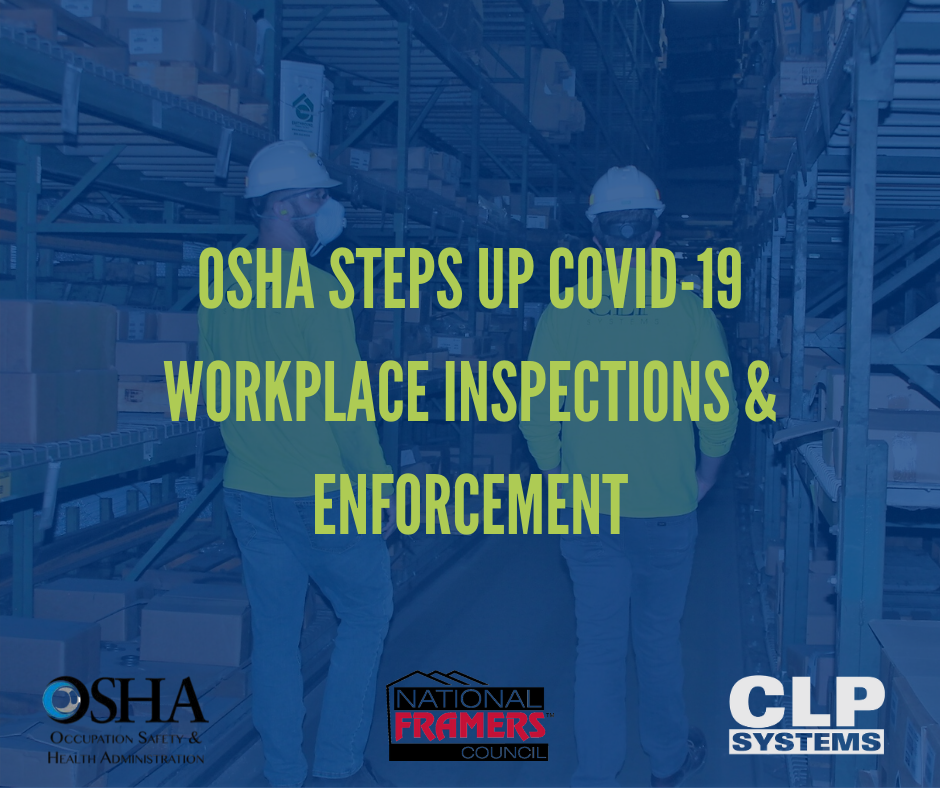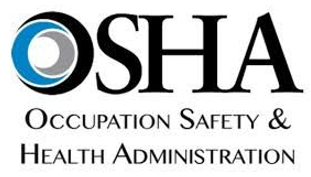
On May 19, OSHA announced that, based on an improved understanding about the transmission and prevention of COVID-19, it has adopted revised policies for in-person inspections and recordkeeping requirements with respect to the virus as economies reopen throughout the country. The new guidance will go into effect on Tuesday, May 26, 2020.
Increased In-Person Inspections

OSHA reports that the risk of transmission is lower in specific categories of workplaces, and personal protective equipment potentially needed for inspections is more widely available. According to the new enforcement guidance(link is external), “eliminating hazards from COVID-19 remains a top priority for OSHA.” As states reopen their economies, OSHA has announced it will:
- Continue to prioritize COVID-19 inspections.
- Exercise discretion in areas experiencing either sustained elevated community transmission or a resurgence in community transmission of COVID-19.
- Utilize all enforcement tools as it has historically done to ensure safe and healthy conditions for America’s workers.
Recordable Cases of Coronavirus
OSHA has revised its April 10 interim guidance for recording cases of coronavirus. Under the new policy(link is external), OSHA will enforce the recordkeeping requirements of 29 CFR 1904(link is external) for employee coronavirus illnesses for all employers. Coronavirus is a recordable illness, and employers are responsible for recording confirmed cases that are work-related(link is external) (as defined by 29 CFR 1904.5(link is external)) and involve one or more of the general recording criteria(link is external) in 29 CFR 1904.7(link is external), such as medical treatment beyond first aid or days away from work.
OSHA concedes that, “given the nature of the disease and community spread, in many instances it remains difficult to determine whether a coronavirus illness is work-related, especially when an employee has experienced potential exposure both in and out of the workplace.” With that in mind, OSHA’s guidance emphasizes that employers must make reasonable efforts, based on the evidence available, to ascertain whether a particular case of coronavirus is work-related and will exercise enforcement discretion to assess employers’ efforts in making work-related determinations based on the following:
- The reasonableness of the employer’s investigation into work-relatedness. OSHA recognizes that “employers, especially small employers, should not be expected to undertake extensive medical inquiries, given employee privacy concerns and most employers’ lack of expertise in this area.” When an employer learns of an employee’s COVID-19 illness, it is sufficient in most circumstances for the employer, while being respectful of the employee’s privacy, to:
- Ask how he or she believes the COVID-19 illness was contracted;
- Discuss the work and out-of-work activities that may have led to the COVID-19 illness; and
- Review the employee’s work environment for potential exposure, as informed by any other instances of workers in that environment contracting COVID-19 illness.
- The evidence available to the employer. The evidence that a COVID-19 illness was work-related should be considered based on the information reasonably available to the employer at the time it made its work-relatedness determination. If the employer later learns more information related to an employee’s COVID-19 illness, then that information should be taken into account as well in determining whether an employer made a reasonable work-relatedness determination.
- The evidence that a COVID-19 illness was contracted at work. While this cannot be reduced to a ready formula, certain types of evidence may weigh in favor of or against work-relatedness. For instance:
- A COVID-19 illness is LIKELY work-related when:
- Several cases develop among workers who work closely together and there is no alternative explanation.
- It is contracted within a short time after a lengthy, close exposure to a particular customer or coworker who has a confirmed case of COVID-19 and there is no alternative explanation.
- An employee’s job duties include having frequent, close exposure to the general public in a locality with ongoing community transmission and there is no alternative explanation.
- A COVID-19 illness is LIKELY NOT work-related when:
- The employee is the only worker to contract COVID-19 in her vicinity and her job duties do not include having frequent contact with the general public, regardless of the rate of community spread.
- The employee closely and frequently associates with someone (e.g., a family member, significant other, or close friend) outside the workplace who has COVID-19, is not a coworker, and exposes the employee during the period in which the individual is likely infectious.
According to OSHA’s guidance, “If, after the reasonable and good faith inquiry described above, the employer cannot determine whether it is more likely than not that exposure in the workplace played a causal role with respect to a particular case of COVID-19, the employer does not need to record that COVID-19 illness.”
OSHA’s recent statement recognizes that, “the government and the private sector have taken rapid and evolving measures to slow the virus’s spread, protect employees, and adapt to new ways of doing business.” With that in mind, it is the responsibility of employers and their workers to continue following the recommendations for preventing the spread of the coronavirus:
- Practice social distancing (staying six feet apart).
- Keep your hands clean.
- Avoid touching your face.
- Minimize ride-sharing.
- Cover your mouth using a face mask or other cloth face protection.
- DO NOT share equipment, cell phones, food or other personal items.
- Disinfect common surfaces frequently.
- Practice proper cough/sneeze etiquette.
- Go home if you feel sick or are running a fever.
- Stay at home in self-quarantine if you are running a fever, have been diagnosed with COVID-19, or have come in contact with anyone who has been diagnosed with COVID-19 or have any of the symptoms of COVID-19.
- DO NOT return to work until you have talked to your supervisor to ensure you comply with company policy to return to work in accordance with CDC guidelines(link is external).
For further information and resources about the coronavirus disease, please consider the following resources:
- SBCA Coronavirus Resources(link is external)
- NFC Coronavirus Resources(link is external)
- OSHA website(link is external)
- CDC website(link is external)
Thank you to The NFC Steering Committee and the SBC Magazine for their article on An Important Letter from the NFC Steering Committee
If you would like to see the original article, you can view it here









